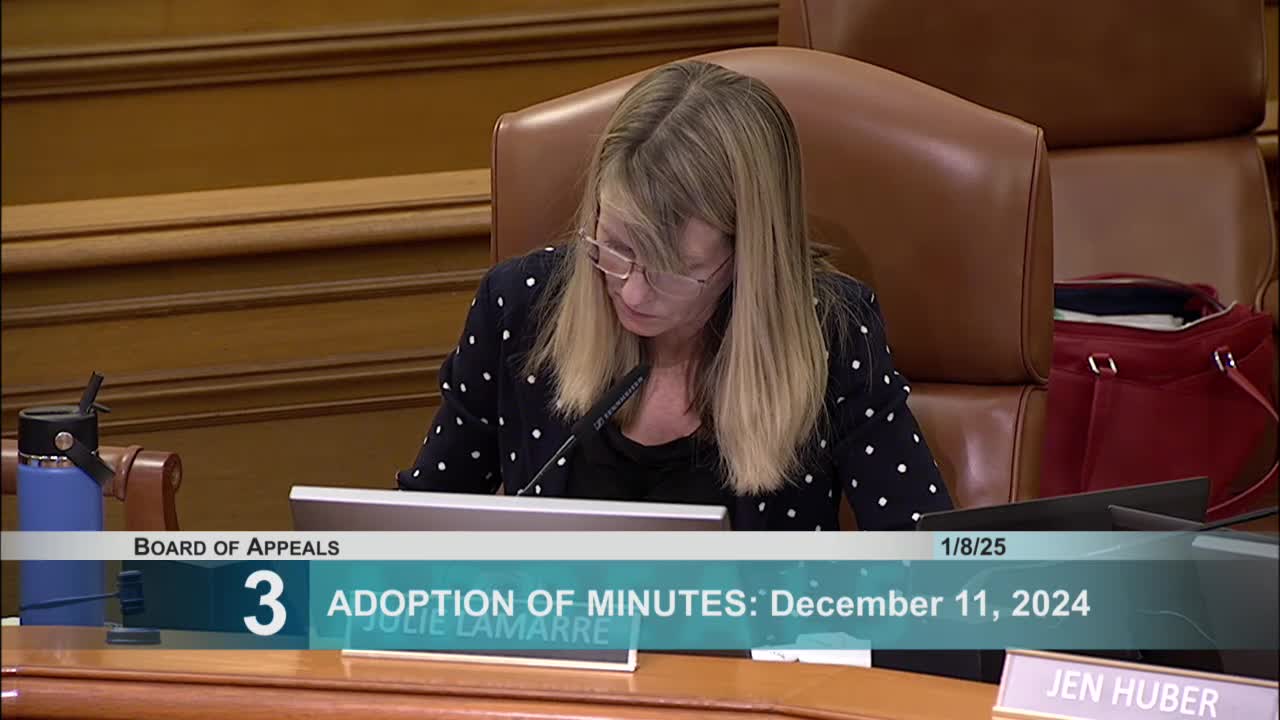Board of Appeals leaves 20‑day suspension of Tony’s Market tobacco permit in place
Get AI-powered insights, summaries, and transcripts
Subscribe
Summary
The San Francisco Board of Appeals on Jan. 8, 2025 heard an appeal by Tony’s Market and Liquor of a 20‑day suspension of the store’s retail tobacco permit, but the board did not adopt any motion to overturn or reduce the Department of Public Health’s penalty.
The San Francisco Board of Appeals on Jan. 8, 2025 heard an appeal by Tony’s Market and Liquor of a 20‑day suspension of the store’s retail tobacco permit, but the board did not adopt any motion to overturn or reduce the Department of Public Health’s penalty. By operation of law the department’s 20‑day suspension remains in effect.
The appeal challenged the director’s hearing order issued Nov. 25, 2024 suspending tobacco permit T94075 for a second violation of the San Francisco Health Code related to the sale or display of restricted electronic cigarettes that lack FDA premarket authorization. Appellant Sadik, who identified himself as the business operator, told the board the products had been inadvertently left “all the way in the back, but, yeah, people if someone try to see it very well, then they can see it,” and asked the board to remove or shorten the suspension to avoid severe financial harm.
The Department of Public Health (DPH) — represented at the hearing by Principal Environmental Health Inspector Michelle Vega — told the board inspectors had discovered prohibited products at the store on two separate compliance checks and that DPH had previously conducted education and outreach campaigns in 2020 and compliance checks between 2022 and 2024. Vega said DPH’s rules and regulations set minimum suspension thresholds and that a second violation typically carries a 20‑day suspension under department guidance; she asked the board to uphold the 20‑day suspension to protect public health and youth.
“Appellant does not challenge the compliance check nor does the evidentiary…deny violating Article 19.R.0.2 by stocking and reselling restricted electronic cigarettes on‑site,” Vega told the board. She said the department had allowed a 72‑hour removal of products in lieu of a 10‑day suspension after an earlier 2022 inspection but then found similar products on a later check.
Sadik said he had run the business for about 10 years and that the items were old inventory that had been overlooked. “I apologize… I would, you know, take this off from my shelf as soon as she told me and you will never ever happen, you know, in the future,” he said. He estimated the immediate financial impact of a 20‑day suspension at roughly $2,000–$5,000 and said the value of the seized or observed e‑cigarette items was about $220.
Board members debated two lines of argument: whether department guidance allowing a 20‑day suspension for a second violation could be applied when the earlier violation occurred more than 12 months earlier, and whether the department had exercised appropriate discretion given the appellant’s cooperation and prior reinspection findings. Deputy City Attorney Jen Huber advised the board that the Health Code (Section 19.H.19) ties enhanced suspensions to a second violation occurring within 12 months, and she said the board is bound to follow the code; she also noted the department’s internal regulations provide more granular guidance that does not explicitly require a 12‑month window.
Commissioners expressed differing views. Commissioner Rick Swigg urged upholding the department’s enforcement as a matter of public‑health compliance and precedent, saying earlier educational warnings had not prevented repeat violations. Vice President John Tresvena and Commissioner JR Epler expressed concern about treating a two‑year‑old incident as an automatic second violation and pressed DPH on whether the 12‑month code provision applied. President Jose Lopez likewise questioned whether DPH could aggregate the earlier violation with the later inspection given the statutory wording.
The board considered several motions: one to grant the appeal outright, one to grant it while reducing the suspension to 10 days, and a motion to deny the appeal and uphold the department. None of those motions achieved the votes needed to carry. After deliberations the board returned the matter submitted; the hearing record shows the board did not adopt a motion altering the department’s order. The department’s 20‑day suspension therefore remains in effect by operation of law.
The case illustrates tensions between DPH enforcement guidance and the text of the local health code when enforcement intervals span multiple years, and highlights the business‑impact arguments retailers raise when facing administrative suspensions for tobacco and nicotine product violations.
The board’s record shows the administrative file includes the Department of Public Health’s compliance reports and photographs from inspections in 2022 and 2024 and the appellant’s written responses.
Next procedural steps: by regulation the department’s suspension is effective as issued unless the board adopts an overturning order; the department will implement the suspension consistent with its permit‑enforcement procedures.
